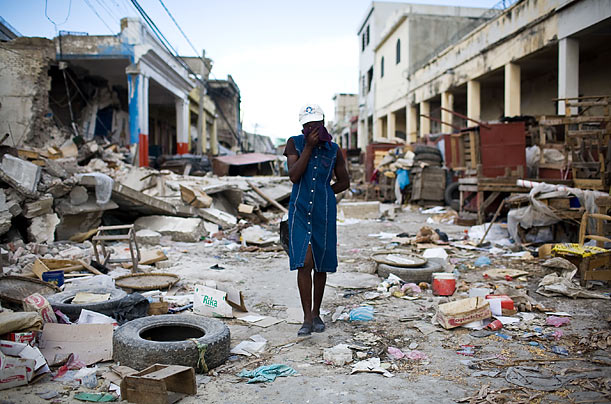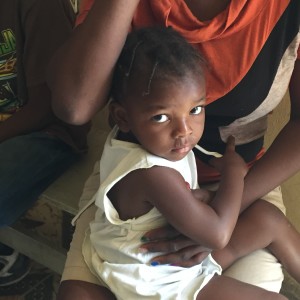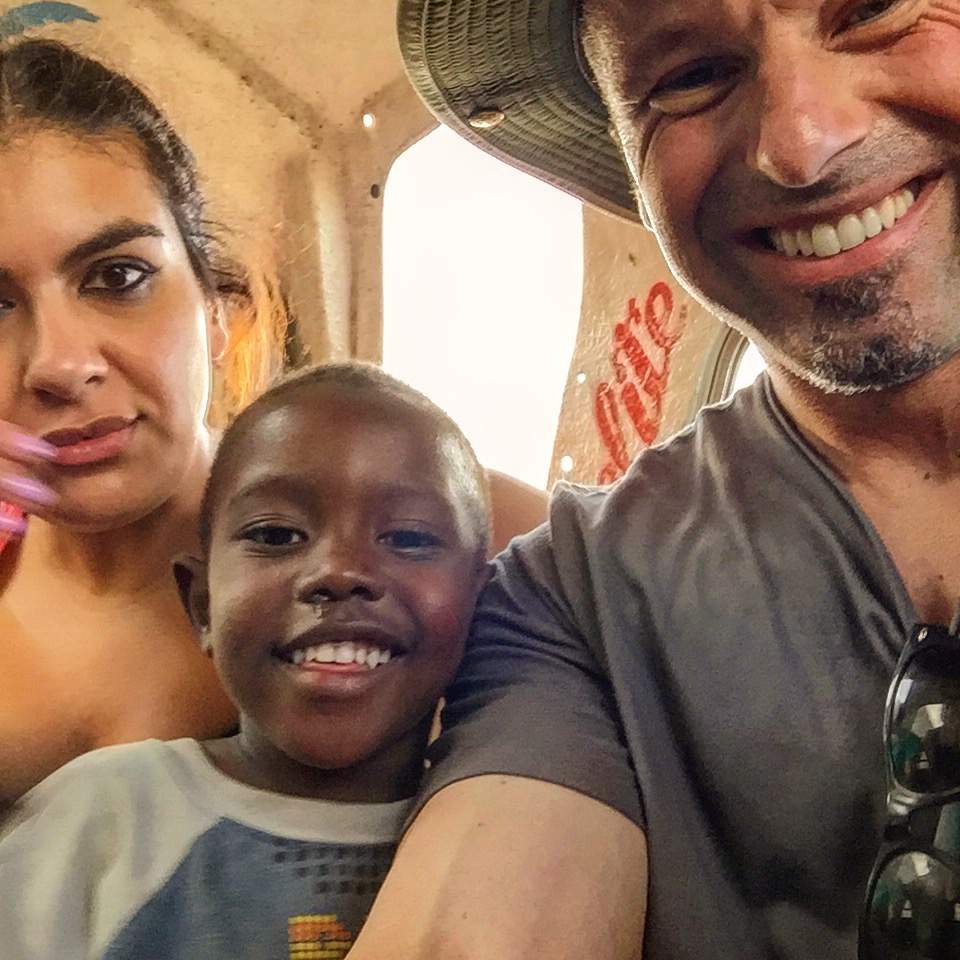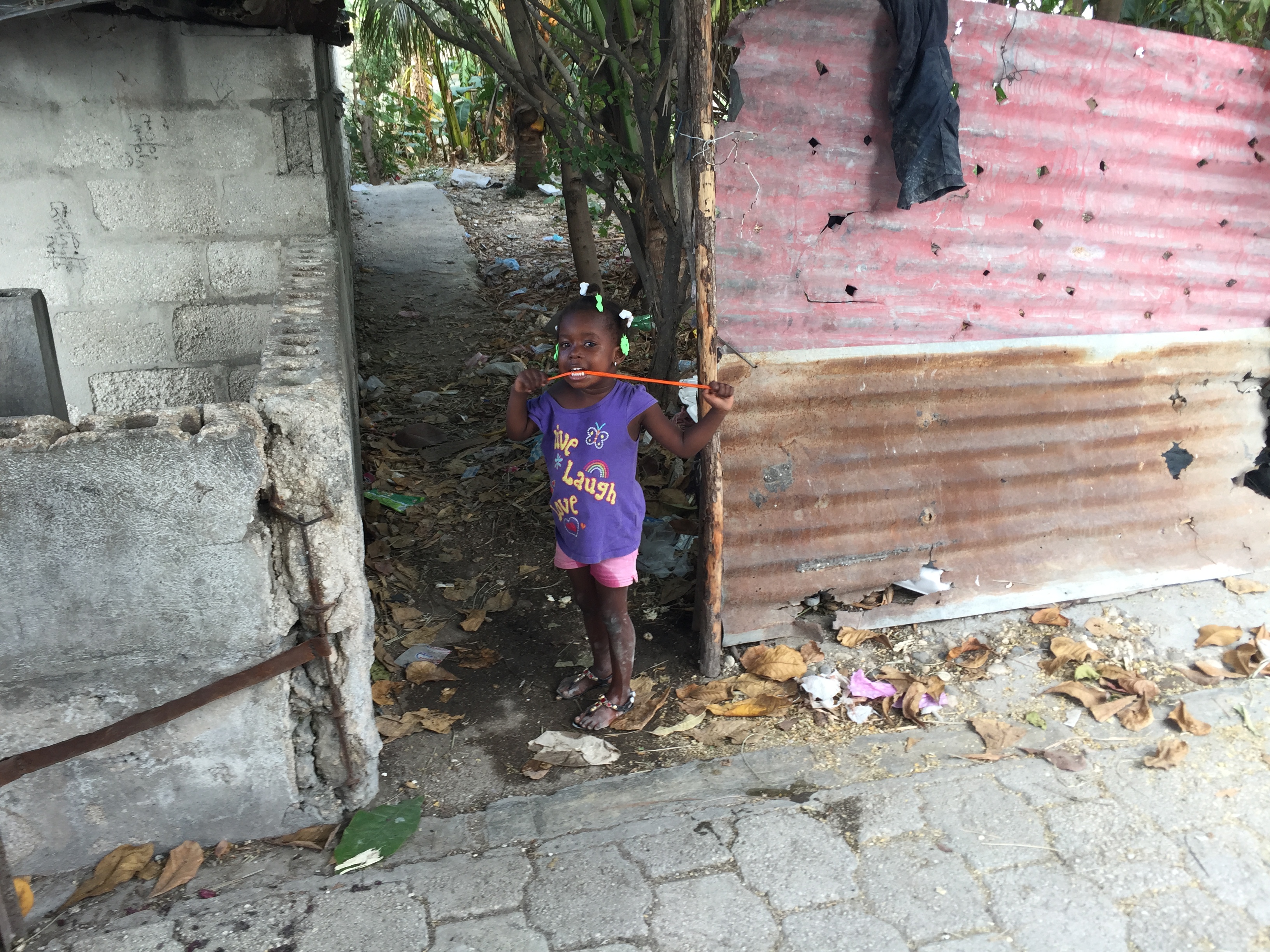
I was tired of the question.
How was Haiti?
Either that or my answer was wearing on me.
I don’t know.
I recently joined a small team of Canadian and American dental professionals for a seven-day outreach in Port au Prince, Haiti.
As a “non-doc,” I was to be one of a few support staff. As in sterilizing instruments and carrying anything heavy.
“Sounds like job creation for meatheads?” I asked the coordinator over email, complete with a smiley-face.
“Able-bodied guys are always useful,” she wrote back. “Cause anything can happen.
“Especially in Haiti.”
The first scorching morning at our modest guesthouse, we were told our clinic was set up in nearby Cite Soleil, an inner city neighborhood. We were also each given a waiver. Curious, I grabbed my phone to learn more about our destination.
Waiting for the hopelessly slow Wifi to play ball, I noticed our security guard carrying a pistol grip shotgun, a 12-gauge Mossberg. Not exactly pepper spray and a walkie-talkie, I thought. Google explained why.
Cite Soleil is the biggest slum in Port au Prince, and among the poorest and most dangerous places in the Western Hemisphere. Rife with murder, rape, kidnapping, looting, and shootings driven by gang wars and fueled by high unemployment, non-existent public services, and unsanitary conditions.
Or as the UN website describes Cite Soleil, “The most dangerous place on Earth.”
I signed the waiver.
Our daily ride to Cite Soleil was in the back of an old pick-up truck converted to a taxi, called a “tap-tap.” Riders tap the tin roof to let the driver know when they want to get out.
The tap-taps have no tailgate, which posed a safety and security risk. So under no circumstances were we to take pictures or even hold our phones during our commute. It seemed like overkill but I complied. Though I hoped photos of our surroundings could be arranged.

As we drove off I saw our man with the Mossberg wasn’t coming. Instead he was locking the heavy iron gates behind us. We were on our own.
Calling Cite Soleil a war zone would be an exaggeration. I never saw guns or heard any explosions during that daily 15-minute commute. But what I did see was the level of devastation that the ultimate war on people, extreme poverty, can have.
Rows of crumbling buildings tagged with gang signs and political propaganda. Unattended garbage fires burning in the middle of broken down sidewalks. A scorched gas station, the pumping area now a grazing ground for goats.

A sea of garbage blocked the entry to our makeshift clinic. We were told the trash was a message of some kind, between rival politicians or rival gangs, it wasn’t clear. Just that attempts to remove it would only lead to even more garbage piled up the next day.
So it was left to rot in the heat, a strange sight for us but a buffet for a few pigs that spent each day rooting through it.
It made no sense. It still doesn’t. It was just Haiti.

That first day of work was tense.
A large crowd was already waiting so we quickly set up. As I hauled boxes I could almost feel their distrust, cautious stares burning into my back like the unrelenting Caribbean sun.

The language barrier didn’t help (Haitians speak Creole, a form of French with Spanish and Portuguese influences) nor did our numbering system. Or the oppressive heat.
And let’s not forget, seeing the dentist can be scary, even in the best of conditions. It can hurt. Children and even men will scream, and many did. This made the crowd even uneasier, and there were skirmishes and yelling matches.

I learned a lot those first few days. That Haitians speak in a loud, animated way that sounds like arguing. That 1 in 2 people in Cite Soleil carry a gun.
And that the throat slash sign – the one the NFL banned players from doing after a devastating hit – isn’t meant to be a threat.
It simply means, “I’m broke.”
Not surprising in a place where the minimum wage is roughly $5 USD for an eight-hour workday. And where many get by on just $2 a day.
I also frequently heard two simple French words that I recognized: “J’ai faim.”
I’m hungry.
I heard it spoken by children so young it’d be one of the few sentences they know. But also by adults, muttered under their breath while waiting for treatment with empty stomachs and no escape from the heat. Or screamed at me or the other staff in frustration.
J’ai faim.

Source: TIME
“When the Earth moves beneath your feet, you realize how small you are.”
In January 2010, a 7.0 magnitude earthquake killed more than 300,000 Haitians and left another 1.5 million homeless.
The media was quickly on the scene and soon the Red Cross. A massive relief effort was hastily assembled.
Telethons were held. Pop stars released anthems. Over $1.4 billion in relief money was raised by year’s end, $32 million from $10 text messages to the American Red Cross.
Then the ratings-driven North American media cycle shifted its attention elsewhere. Radio stations stopped playing the anthems. Things in Haiti were presumably back to “normal.”
And now, six years later, there are unanswered questions about where most of that money went.
Was this expected?
In the last 30 years alone, two former Presidents, Duvalier and Aristide, were accused of embezzling hundreds of millions of dollars.
But corruption and exploitation have been woven into Haiti’s fabric since Columbus arrived in 1492. It’s said that Haiti was home to some of the most brutal slavery practices the world has ever known.
However, this time even Haiti’s “own” came under fire. Rapper Wyclef Jean’s Yele Haiti charity took in $16 million on the strength of his celebrity, but spent anywhere from four to nine million on “expenses” like performance fees for Jean. The charity shut down in 2012.
The people of Cite Soleil don’t need an auditor’s report or a history lesson. For them it’s obvious where the money went.
As one Haitian told me, within days after the earthquake, the broken down streets were full of foreign aid workers. All collecting salaries and driving brand new white SUV’s.
It’s just Haiti.
Seeing the effects of real poverty first hand and not on your web browser can be shocking. A mother brought in her beautiful little girl for dental care. But she was stopped at triage – the orthodontist noticed a scalp infection so advanced she needed a hospital.
 Later that week, a man arrived complaining of a sore foot of all things. He took off his shoe and revealed a festering sore, with visible parasites moving under the skin.
Later that week, a man arrived complaining of a sore foot of all things. He took off his shoe and revealed a festering sore, with visible parasites moving under the skin.
He was also taken to the hospital, but since it was Friday was told to come back Monday. It wasn’t considered “life threatening.”
It also wasn’t wise that a foreigner drove him there. It just meant he’d be charged more.
I guess, because Haiti.
But as the week wore on there were also uplifting things. Young locals recruited to assist the doctors getting involved in providing treatment. Some even getting to pull their first tooth. The proud look on their face as everyone cheered.

The tension, like the heat, also seemed to subside. People that glared at me when I arrived were now striking up conversations.
Are you from America? What sports do you play? Do you know (insert name of movie star).
Or my favorite question: What’s winter like?
That last day I clowned around more than I worked. I wondered why the tension had subsided. Did they trust me more, trust us more? That we weren’t trying use the “gift” of aid as leverage to get at their few belongings, or their dignity?
Or was the change in me?
I asked our coordinator if it would be okay to walk around “the most dangerous place on Earth” to finally get the photos I’d been wanting of the buildings, the graffiti, and the wild pigs.
“It will be fine,” she said.
As I left a UN convoy patrolling the streets rumbled by. But the stoic procession of white tanks and soldiers in powder blue helmets seemed more ceremonial than reassuring.
If anything, it was like much of the foreign aid in Haiti – a feel good gesture for the giver, but of little value to the people that really need it.
A few teenage boys who’d been hanging around offered to pose for my camera. The oldest squeezed my arm.
“Do you play sports?” he asked.
“I used to play hockey,” I said.
“Not anymore?”
“No, now I just workout a bit.”
“Oh! Like The Rock?”
“Yeah,” I said. “Kinda like The Rock.”
He leaped back and hit his best front double biceps pose. His genetic potential was obvious — broad shoulders, narrow waist, and quick feet. What he could become if given the opportunity.

Our last night we went to a far different part of Port au Prince for a break. During that half hour ride the roads got better, the walls surrounding the buildings higher, the streets cleaner, and the landscape manicured.
Suddenly we were out front of a posh hotel, the long driveway marked with luxury German vehicles. And plenty of new white SUV’s.
At the hotel bar I saw plenty of white faces and heard English spoken in familiar accents: American Northeast, Texas, British, Canadian. I tried to enjoy the very good whiskey, all the while thinking that this isn’t the same city. Not the same country.
The hotel had fast WiFi, so between drinks I found a statement Bill Gates released about the state of the developing world:
“By 2035, there will be almost no poor countries left in the world.”
“A few countries will be held back by war, politics (North Korea) or geography (landlocked nations in central Africa). And inequality will still be a problem. There will be poor people in every region.
“But most of them will live in countries that are self-sufficient. Every nation in South America, Asia, and Central America.
“With the possible exception of Haiti.”
How was Haiti?
It’s a contradiction.
Breathtaking natural beauty and devastating institutionalized poverty.
Strong, resourceful people desperately in need of help, yet deeply resentful they have to ask for it.
It was the resentment that confused me. But once I was able to decompress it became clear.
People in places like Cite Soleil know they’re born into a game. With rules set by someone far up on top of a hill, in a beautiful house hidden behind iron gates and an impenetrable cement wall.
A game that’s been rigged so that they can only lose, and then have to ask for charity.
And they resent it. Because they’ve been playing it for 500 years.
We saw 372 patients in five working days. For some it provided instant relief. For all it was a service they could never afford on their own.
But did it make a difference?
Haiti’s issues go far beyond what filling a tooth or treating a wound or even money can heal. Even Bill Gates, for all his philanthropy, can’t solve systemic corruption and poverty and the deep-seated effects of exploitation and colonialism.
But the point wasn’t to solve those problems. It was to do what you can, with what you have.
Because even if it’s just a little, it can still make a difference in the life of someone who has nothing at all.
Better to light one candle than curse the dark.
I still don’t know about Haiti. But that much I do know.

Me, Doctor Wife, Awesome Coffee, 105 degrees at 8am.

Our evening meal was always a highlight.

Dropping off gifts for some needy kids.

This was lunch every day. Getting my plantain on.

Dr. Damn Fine and a happy customer after a long day.

Mr. Mossberg, keeping us safe.

Rear entrance to our clinic.

Nobody likes to smile after seeing the dentist.

Almost brought this little guy back to Canada.

The Non-Doctor will see you now.

